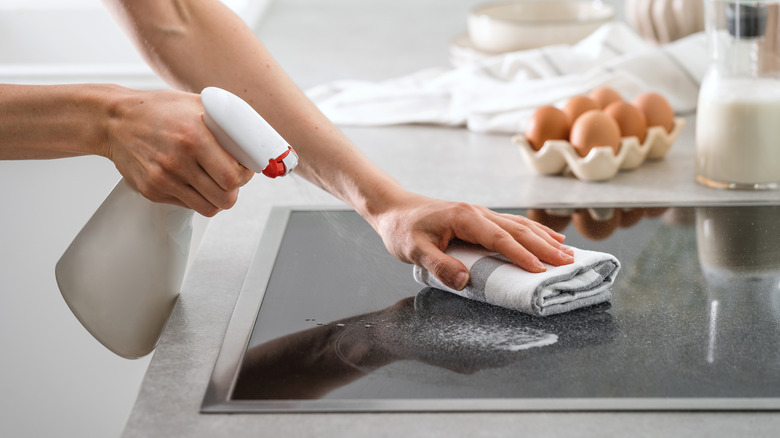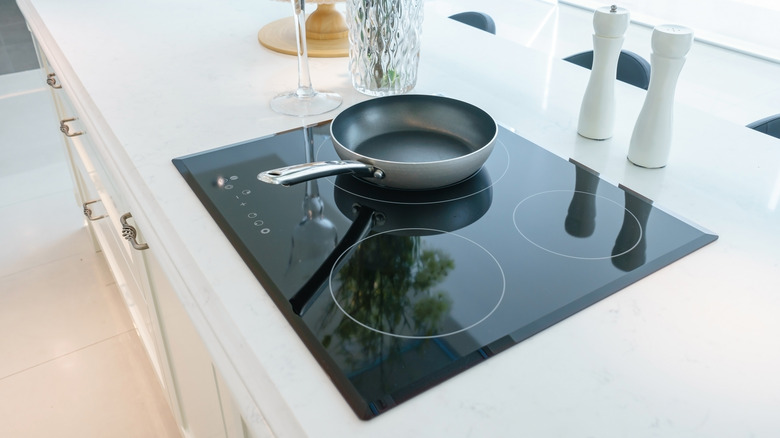How To Clean Your Glass Stovetop With Vinegar
Cooking dinner can lead to lots of unintentional messes, between oil and sauce splatters, stuck-on food, and water bubbling over. A glass stovetop is often easier to clean than a gas stove with its slick design, but it's important that you do so regularly to keep it working smoothly and avoid safety hazards. Fortunately, there are many different ways you can use vinegar to make your kitchen sparkle — in addition to shining up the countertops, vinegar can be used to clean your glass stovetop in just a few easy steps. With how versatile it is, you might have it in your cabinet already.
Vinegar is an all-natural and powerful solution on its own. When combined with baking soda, which is another miracle worker for cleaning, it goes to another level. Instead of purchasing chemical-filled products, you can use vinegar to clean your glass stovetop after each use to keep it looking its best. For a deeper job, pair it with baking soda so that they can fight the leftover messes together. Both methods are simple, inexpensive, and effective.
Before starting the process, check your stovetop manual to see if there are any specific cleaning instructions. It's very important to follow their guidelines, especially if there is a warranty on the appliance. Also, make sure the burners are off and that the surface is cool. It's not safe to clean a stovetop while it's still hot. This will give you time to prepare your supplies.
Follow these steps to get your stovetop clean up with vinegar
Grab an empty spray bottle and fill it with one part distilled white vinegar and one part water. For an added kick, you can squeeze a few drops of mild dish soap into the spray bottle. Shake the bottle to combine the ingredients, then spray the entire stovetop with the mixture, and wipe it down with a moist microfiber cloth. Finally, use a dry microfiber cloth to eliminate any streaks. This technique can be used on a daily basis to clean effectively and prevent cleaning scratches on your glass stovetop — it's recommended that you always clean your stovetop after using it to steer clear of residue buildup.
If your glass stovetop needs a more intense cleaning, reach for your baking soda, too. First, pour vinegar into a spray bottle, then spray it all over the surface. Next, generously sprinkle the baking soda on top of the vinegar. Cover the mixture with a hot, wet towel, and let it sit for 10 minutes or so. Once the time is up, take a microfiber cloth and clean it off. Go over the surface with additional spritzes of vinegar, wiping it until you achieve your desired results. Use this technique every two weeks or once a month to revive your cooktop.
As we know, food spills and messes will inevitably happen when cooking, especially if you're doing it on a daily basis. Just keep vinegar on hand for an all-natural way to make cleaning up your stovetop a breeze. Consider marking your calendar so you don't forget to give it a good deep clean, too.

